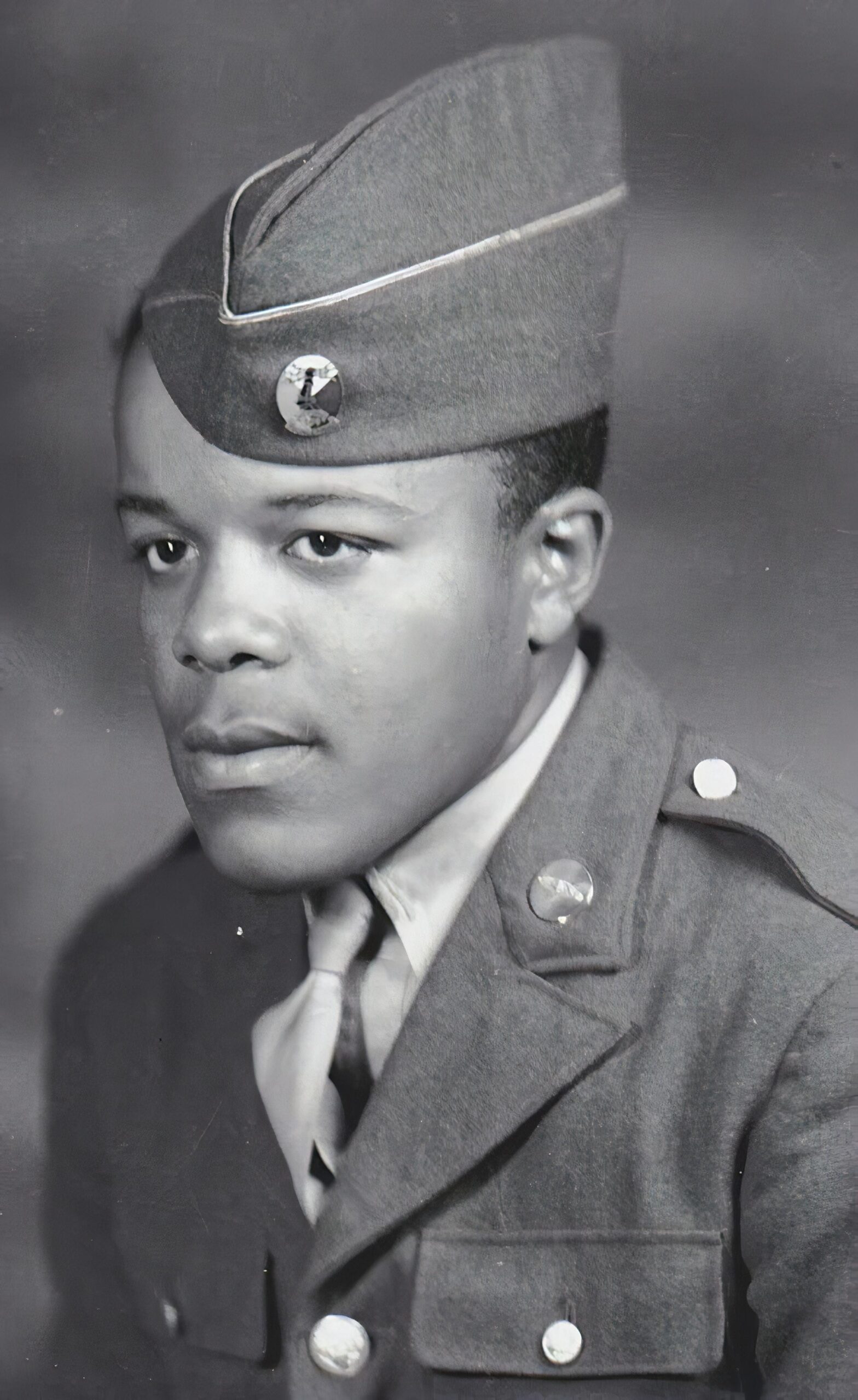William McBurney fought in the Battle of the Bulge as a member of the U.S. 761st Tank Battalion. As an African-American soldier, he endured racism and discrimination throughout his military training and career. William fought for the liberation of the European people from Nazism, but also for the liberation of the African-American people from racial injustice on the home front.
William McBurney was born in New York and voluntarily enlisted in the American Army in 1942 at the age of eighteen. He later testified that he was neither afraid nor excited to go to war but felt it was what he was supposed to do.
Initially, William wanted to be a pilot. His father warned him that “a black man would never fly an airplane,” but William did not believe him and volunteered to go into service to be a pilot anyway. He was not accepted as a pilot and was eventually assigned to the 761st Tank Battalion. One of William’s experiences with segregation in the army was when captured German soldiers were allowed to eat in the same cafeteria as the white U.S. soldiers. In contrast, black U.S. soldiers had to go to another location to eat.
The 761st battalion – also known as ‘The Black Panthers’ – fought side-by-side with Patton’s 3rd Army in the Battle of the Bulge in December 1944. While the unit contributed to the defeat of Nazi Germany, William later declared that according to him and his companions, they achieved something even more critical: they demonstrated that they were just as good as white men. Many of the white infantry soldiers they had fought alongside with, eventually learned to treat them as they would any other soldier. Through their accomplishments on the battlefield, the 761st Tank Battalion changed the opinion of at least some of their white countrymen.


Black and white assembly line men work together in this home front war poster. In reality, the American society and army was segregated during the Second World War.
